Do you often find yourself stressing over whether you’ve hurt your partner’s ego? Do you tend to go over and beyond your means to cater to their needs, such as buying them expensive outfits, taking them out on fancy dates, or booking expensive vacations with them, but are still made to feel you aren’t doing enough? Do you often wonder if your needs are valid too and if your partner has unrealistic expectations from you? Well, each of these is a prominent example of narcissistic behavior in a relationship and we feel you may need a reality check. Your partner may be suffering from narcissistic personality disorder.
But what can you do if you’re part of a narcissistic relationship with someone and are facing narcissistic abuse? What are narcissistic behaviors and how do they affect your relationship? Is pathological narcissism really something that can ruin your connection with your partner? How can you check such behavior and when do you need to seek help? Read on, as our expert psychologist Nandita Rambhia (MSc, Psychology), who specializes in CBT, REBT, and couples counseling, helps us explore narcissistic relationships and throws light on some examples of narcissistic behavior in relationships.
What Is Narcissistic Behavior?
Table of Contents
The very word narcissism originates from the Greek mythological character Narcissus, a hunter who apparently fell in love with his own reflection in a pool after he was punished. The name itself is perhaps self-explanatory. Narcissism or narcissistic personality disorder is a condition wherein a person showcases excessive self-importance.
Nandita explains, “In general, narcissists are people who love themselves to an abnormal extent. But there are different types of narcissism, and the character traits and behaviors of each vary from the other.”
Related Reading: 11 Tips To Deal With A Narcissist Boyfriend Smartly
Before we delve deeper into the examples of narcissistic behavior in a relationship, let’s look at the 2 major types of narcissism that we generally come across:
1. Grandiose narcissism
This condition perhaps stems from having been mollycoddled by one’s parents or being treated as superior to one’s batchmates by teachers. People with grandiose narcissism are mostly:
- Elitist
- Aggressive
- Confident in a grandiose sense
- Devoid of empathy
- Fond of bragging about themselves
- Fond of dominating people around them
In fact, a study suggests, most people with grandiose narcissism may actually occupy leadership positions in organizations but may eventually lead those organizations to failure, owing to their overconfidence and their habit of externalizing blame.
2. Vulnerable narcissism
This is the second major type of narcissism, which perhaps stems from being neglected or abused as a child. Being a narcissist shields them from being mishandled. A study suggests this type of narcissism is linked to an innate fear of being laughed at. Nandita adds, “This sort of a narcissistic person has a self and an anti-self. Vulnerable narcissists seem to project high self-esteem and confidence, but that stems from low self-esteem and a desperate need for approval.” Such people are mostly:
- More sensitive than their grandiose counterparts
- Prone to switching between inferiority and superiority complex
- Defensive
- Withdrawn
- Prone to feeling insecure and offended when they aren’t given enough attention
Related Reading: How To Make A Narcissist Miserable – 13 Things To Do
Now that we know what narcissistic behaviors are and how they manifest in people with narcissistic personality disorder, let’s read on and find out the signs that you’re with a narcissist.
How To Recognize You Are With A Narcissist – 7 Signs
We’ve seen how there can be different types of narcissism. But what are the broad narcissistic traits that you’re bound to find in a narcissistic person? A Reddit user says, “A NPD person will easily explode with rage and revenge then act surprised as to why you are upset or angry about it – you deserved it even if it wasn’t warranted.”
However, Nandita feels, “Traits of a narcissist include a marked need for praise and attention, they love being the center of attention, they like to be admired and acknowledged. But they lack the ability to understand other people. Normally, they aren’t bad people and they can be helpful, but they lack empathy and that drives people away.” Here are some signs that you’re definitely with a narcissist:
1. They lack listening skills
One of the traits of a narcissist is that they hate listening to others. They wouldn’t spend a minute listening to your point of view. In fact, when they listen to you, they may:

- Dismiss your concerns
- Negate your emotions
- Ignore your point of view
- Display haughty behaviors, such as contempt or a condescending attitude
- Minimize or diminish your feelings
2. They interrupt and hijack conversations
A warning sign in such cases is the lack of two-way conversations. Narcissists will invariably interrupt conversations and hijack them, turning the focus to themselves. There are more ‘I’s in a narcissist’s words than ‘We’s.
Related Reading: Exposing A Narcissist – What You Should Know
3. They offer one-sided criticism
With a narcissist, you can be sure of constant criticism about your looks, career choices, or other matters, from their end, and most of it may not be constructive criticism. You can be sure they will never be completely happy with people around them. There is always something that bothers them. But try criticizing them, and they won’t spare you. They will hit you back with barbed words and make sure to hurt you.
4. They don’t care about rules
One of the traits of a narcissist is that they suffer from what is known as The Tall Man (or Tall Woman) Syndrome. This means, they feel they are superior to other people, be it in terms of looks, social class, professional achievements, or education.
Related Reading: 8 Signs Of Covert Narcissist Hoovering And How You Should Respond
This also makes them feel they aren’t made for rules or social norms. So, a narcissist may deliberately:
- Be fashionably late at work or social gatherings
- Break traffic rules
- Break the queue at departmental stores
- Quarrel with the customer care executive because they want their concerns to be addressed first
5. They overstep boundaries
Another of the marked traits of a narcissist is the tendency to overstep boundaries. So, it’s crucial to set healthy boundaries with them. Since narcissists are known for their grandiosity, they often consider other people around them inferior to them, thus disrespecting their boundaries. You would often find them:
- Being least bothered about the emotions of others around them
- Turning up at a friend’s place without informing them
- Making promises and not keeping them
- Borrowing items without returning them
6. They have a sense of entitlement
Narcissists feel entitled to special treatment. And when they don’t get the attention they think they deserve, they may:
- Start throwing around their attitude or resort to tantrums
- Give you negative vibes by withdrawing from the conversation or getting into an argument
- Abuse you emotionally, by attacking your insecurities
Related Reading: Manipulation In Relationships – 11 Subtle Signs You Are A Victim
7. They manipulate often
Narcissists are also master manipulators. They may appear to be friendly and charismatic, but they will eventually try and use you for:
- Money
- Fame
- Connections with high-status people
It’s all about them, and their emotional manipulation tactics never end. They hardly care about others’ feelings. Gradually, they will try and gain control of the relationship or friendship, and extract whatever they can out of you.
But Nandita also adds, “It’s important not to label people narcissists. Each one of us has a hidden narcissistic side, whether we accept it or not. In fact, it’s good to love yourself, have self-esteem, and be acknowledged for your achievements. But the problem arises when the self-love spills over and affects others around us. That’s narcissism.”
But how is a narcissist in general situations different from a narcissist in a relationship? Let’s find out in the next section.
9 Examples Of Narcissistic Behavior In Relationships
When a narcissist is ready for a relationship, they tend to attract their partners with their enigmatic and fun-loving personality. Over the years, many peer-reviewed studies have proved that narcissism leads to romantic success in short-term relationships or the early stages of dating, while it leads to major issues in long-term or close relationships. Such studies also show that the initial gestures of love in such relationships are driven by excessive admiration, while the bitterness that creeps in later is due to the narcissistic trait of rivalry driven by their ego.
Related Reading: 11 Signs Your Husband Uses You Financially
Nandita says, “A narcissist in a relationship would behave quite differently with their partner than they do with others around them, at least initially. It’s interesting how they put on a mask of being magnetic to trap their partners into a whirlpool of deceit and manipulation.” So, what are some examples of narcissistic behavior? Well, the following behaviors encompass 9 examples of narcissistic behavior in relationships:
1. Grand gestures of love
Initial narcissistic tendencies include prominent love bombing. Nandita says, “If a narcissist wants to attract a partner, they can be incredibly charming and extremely romantic with them and shower them with grand gestures of love initially, in what is known as the honeymoon phase.” In fact, they may not show arrogant and haughty behaviors at all.
But though this may seem like a normal behavior, this is not because they are captivated by their partners. It’s also not because they want their partner to be attracted toward them. But they want to bind them in the bond of love so intensely that they won’t be able to escape later.

So, in this phase, you may see the narcissist:
- Spending on lavish vacations with their partners
- Taking them out to fancy dinners
- Buying them expensive gifts, such as jewelry and clothes
2. Need for external validation
Examples of narcissism in a relationship include the narcissist’s innate need for validation. Nandita says, “While the initial phase of a narcissist’s relationship is often overflowing with attention and love for their partner, soon, the partner realizes that a narcissist needs constant compliments. And as long as the compliments are coming, the relationship is great.”
They love praises, validation, and attention. This validation feeds their ego and they feel superior to others around them and entitled to attention. Nandita adds, “In such situations, narcissists feel they deserve not just what they have but something more.”
Related Reading: 8 Signs You Have A Controlling And Manipulative Husband
3. Fragile ego
A narcissistic relationship is often the victim of the narcissist’s ego. Nandita says, “As the relationship progresses, what becomes clear is that the narcissist has an unhealthy and inflated sense of self-esteem. So, you may find them getting upset or aggressive over little things.” In such cases, their ego may be hurt if you:
• Cancel a date with them and choose to go out with friends instead
• Engage in light banter and tease them
• Wear an outfit gifted by your mother on your anniversary instead of the one they gifted you
4. Jealousy
Examples of narcissism in a relationship also include jealous behavior. Narcissists, especially narcissistic men, tend to be excessively jealous in relationships. It’s a combination of their narcissistic ego and male ego. So, a mere conversation with a male friend at a party may turn them green with jealousy. It’s also worth mentioning here that narcissists view their partners as a means to an end or an ego-boosting mechanism, and if someone else gets their attention, there’s no end to
a narcissist’s jealousy.
Related Reading: Personal Space In A Relationship Holds It Together
5. The blame game
Narcissistic tendencies also include blaming and shaming. Narcissists don’t ever take accountability for their actions. If things go south, they are always ready to blame their partners. So, be sure that when a problem arises in a romantic relationship, a narcissist is most likely to:
- Stonewall their partners or give them the silent treatment to punish them
- Hurt them emotionally
- Never apologize for their actions
6. Spending a lot on themselves
A narcissistic relationship may suffer from a narcissist’s over-indulgence in themselves. Yes, appearances are important for narcissists, be it their social image on Instagram or in front of their friends. So, any narcissist, be it a guy or a girl, tends to overspend on themselves, even at the cost of ignoring their partner’s concerns or neglecting their emotional needs. So, you may find a narcissist:
- Splurging on vacations just to put up an attractive feed on Instagram
- Spend on self-grooming products
- Focus excessively on fitness
7. Affairs
A narcissistic relationship may also bear the brunt of a narcissist’s flirtatious ways. Yes, narcissists can be excessively jealous when their partners even hint at flirting with others, but they tend to be so hungry for attention and adulation, they may end up flirting with everyone they fancy, just to feel special and important. So, a narcissist may tend to have affairs easily and may be emotionally unavailable for their partner.
8. Need for control
Narcissism examples also include the narcissist’s controlling behaviors. In fact, the narcissist’s need for control in a romantic relationship may manifest in a variety of factors. So, when they don’t get enough attention, they may:
- Resort to histrionics, such as yelling or wailing
- Gaslight you, i.e., make you feel confused, feel insecure, or doubt your sanity by negating your feelings
- Isolate you from your friends or family members, thus making you emotionally vulnerable to their manipulation
- Make you feel guilty for addressing your own needs
9. Leaving their partners before they leave them
Examples of narcissistic behavior in a relationship also include the narcissist’s will to abruptly end such relationships. In narcissistic relationships, narcissists are with their hosts as long as they need them to feed their ego or cater to some need. And a narcissist doesn’t easily let their partner quit on them or leave them for healthier relationships, unless they themselves decide to quit. So, a narcissist may, when they realize they can be left, resort
to:
- Love bombing again to get them back
- Make the breakup emotionally and financially costly, by giving them expensive gifts or tugging at their past memories
- Put up a fake show of love on social media
What To Do And When To Seek Help?
Now that we’ve given you a clear picture of some prominent narcissism examples, are you wondering what you can do about it? So, when does a narcissist’s partner need to seek help? Nandita says, “Dating a narcissist can be emotionally draining for anyone. The partner may end up being gaslit and exploited. One would often feel lonely and controlled in the relationship with a narcissist. What’s interesting is that they may face narcissistic abuse, but the abuse may not be direct or visible. It may not even lead to physical abuse.” Here’s what you can do if you often wonder how to deal with a narcissist boyfriend or girlfriend:
1. Recognize narcissistic relationship patterns
Nandita suggests, “Try and find out on what level of narcissism your partner operates. Remember, the narcissist won’t admit they are a narcissist.” Find out if it’s turning out to be too much for you. Or is it at a level that can be addressed and healed?

2. Communicate
It’s important to locate what the narcissism has stems from. Open communication is crucial in such cases. Try to dissect their lives a bit and find out if the narcissism is in fact due to a deep-seated emotional vulnerability or childhood trauma. Address it accordingly.
3. Decide if you want to stay
Nandita says, “Once you figure out what’s causing their narcissism, it’s important to decide whether you wish to stay or move on. Ask yourself if you’re okay with the level of narcissism your partner shows and wish to help them recover.” If not, move on and away from the emotional abuse.
Related Reading: 7 Reasons Why Narcissists Can’t Maintain Intimate Relationships
4. Build your own self-worth
If you indeed decide that you need a way out, step out and build your self-worth. Nandita suggests, “Try to counter the gaslighting and manipulation tactics by developing your own self-esteem. Also be self-compassionate. It’s important to take care of your own emotions, as you may not have received empathy from your narcissistic partner.” You can do this by:
- Creating a network of friends to rely on for emotional support
- Focusing on your life goals, such as your career, interests, and passion
- Creating healthy boundaries, so that no partner can penetrate them easily
- Taking care of both your physical and mental health
- Focusing on self-care
- Working on your own behavior and building your self-confidence to help you say “No.”
- Not letting self-doubt cloud your mind
5. Seek professional help
Nandita suggests, “In a long-term relationship with a narcissistic partner, where it may not be so easy to just quit on your partner, seek guidance and help.” In fact, it’s important to cut off such abuse and safeguard your mental health instead, as narcissism itself is one of the most toxic mental health conditions. And what better way can there be to get help than consult a professional counselor or a mental health professional? In fact, a licensed therapist or a clinical psychologist may be your best bet in such cases. Bonobology’s panel of expert counselors are here to help you.
Key Pointers
- There are 2 major types of narcissism: grandiose and vulnerable narcissism. And each has distinct characteristics
- Some signs that you’re with a narcissist are their lack of listening skills, their tendency to dominate conversations, their entitlement, their one-sided criticism, and their lack of concern for rules
- What are some examples of narcissistic behavior? A narcissist in a relationship behaves differently with their partner initially. They start off with excessive love and affection
- Once they have their partner in control, they reveal a lot of traits, such as the need for external validation, their fragile ego, the need for control, the tendency to cheat, and the habit of splurging on themselves
- Partners can address these issues by recognizing the narcissistic relationship patterns, finding out the root cause, deciding whether to stay or leave, working on their own self-worth, seeking outside support from a close network of friends, and consulting a counselor or a mental health professional to safeguard their mental health
Yes, narcissism is one of the most toxic personality disorders. But we hope you aren’t still wondering, “What are narcissistic behaviors?” We also hope you now know how to deal with a narcissist boyfriend or girlfriend. Yes, it’s important to be aware of your partner’s needs. But remember, when you’re in a relationship, it should feel good. Don’t let a narcissist abuse you to insanity. Once you identify an example of narcissistic behavior in a relationship or realize you’re being manipulated or gaslit by your narcissistic partner, it’s time to take a good look at the relationship and decide whether you’re better off without it. Take some time out for self- care and reflect on what you’re going through. After all, nobody is worth sleepless nights that leave you wondering whether you’re worth true love.
FAQs
A narcissist initially tends to lovebomb their partner with grand gestures. But once the relationship progresses, they start gaslighting and manipulating their partners. They also demand excessive attention from their partners and act up if they don’t get it.
The narcissist is attached to a person as long as they get something out of the relationship, be it fame, money, or social status. In that sense, the narcissistic love language consists of selfish motives that need to be achieved by any means. The narcissist, however, reacts strongly if their partners are remotely selfish.
8 Common “Narcissistic Marriage” Problems And How To Handle Them
Your contribution does not constitute a charitable donation. It will allow Bonobology to continue bringing you new and up-to-date information in our pursuit of helping anyone in the world to learn how to do anything.

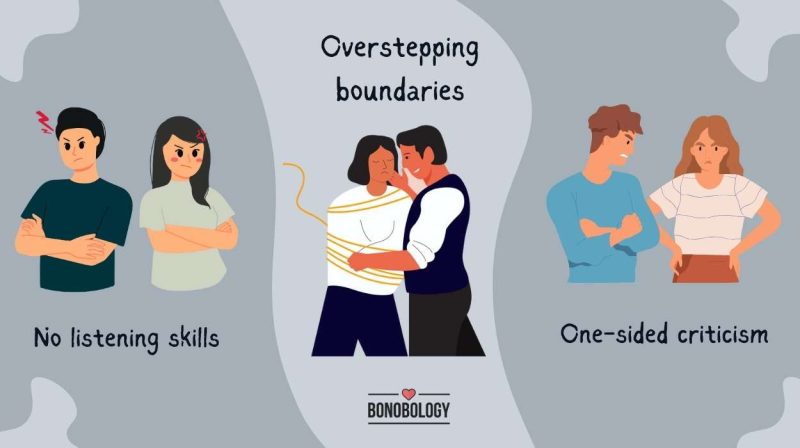


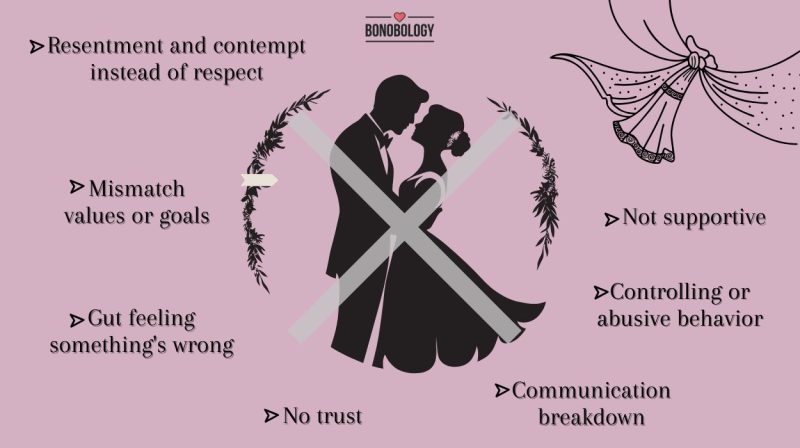

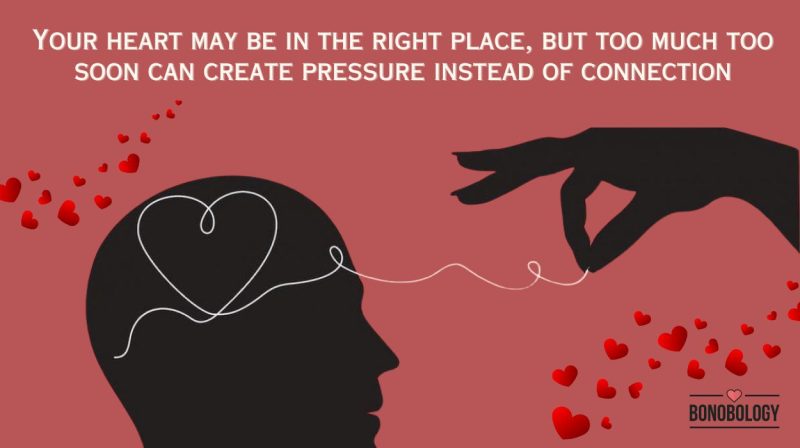






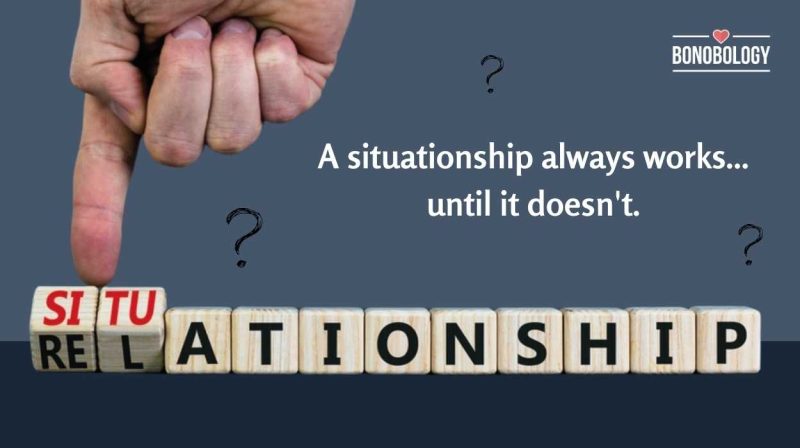

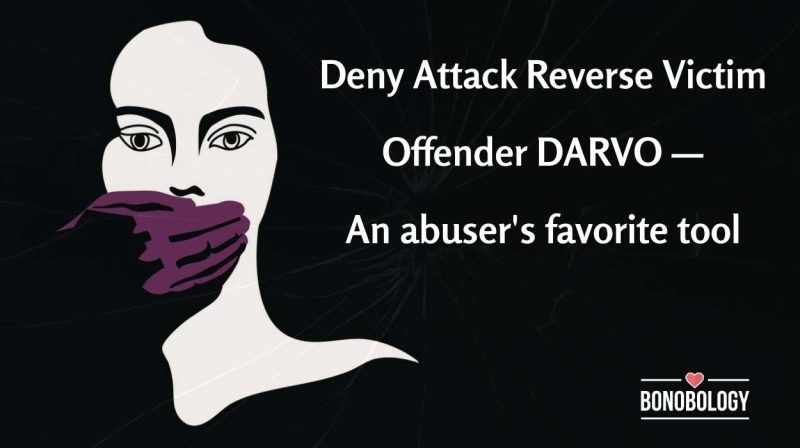

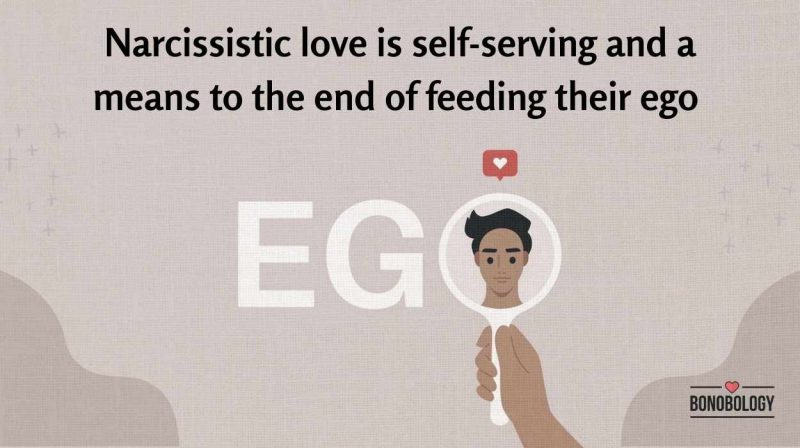
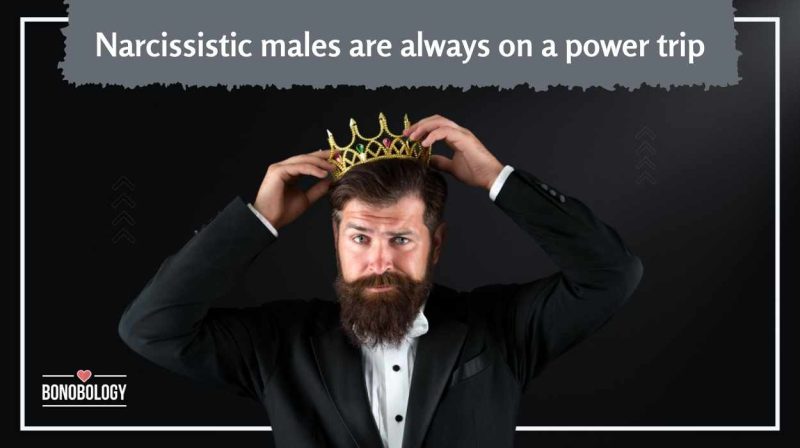
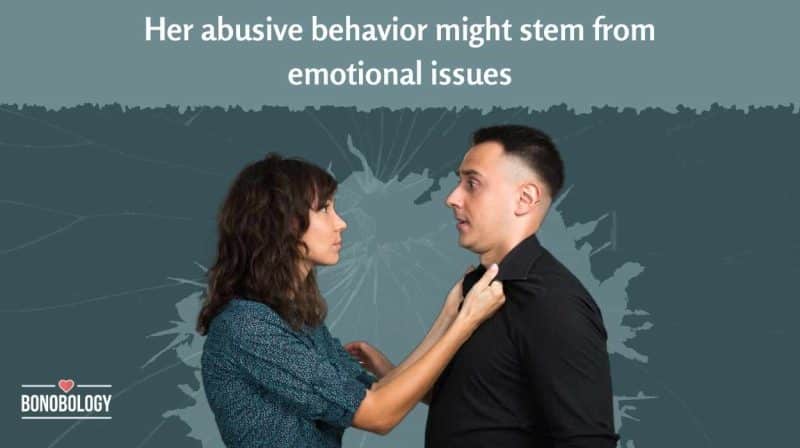
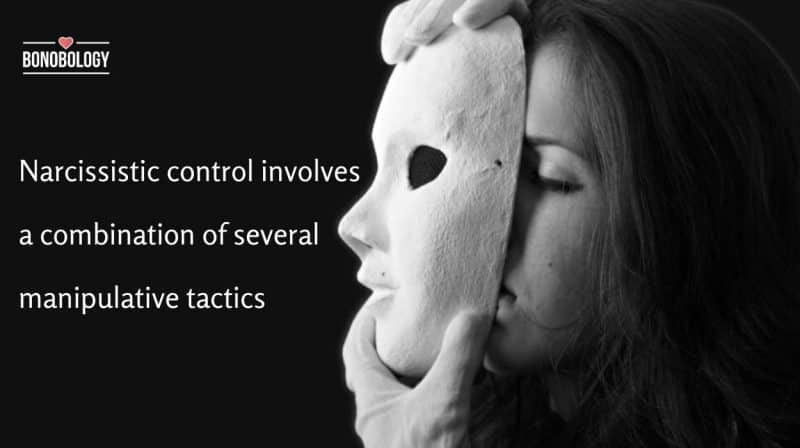
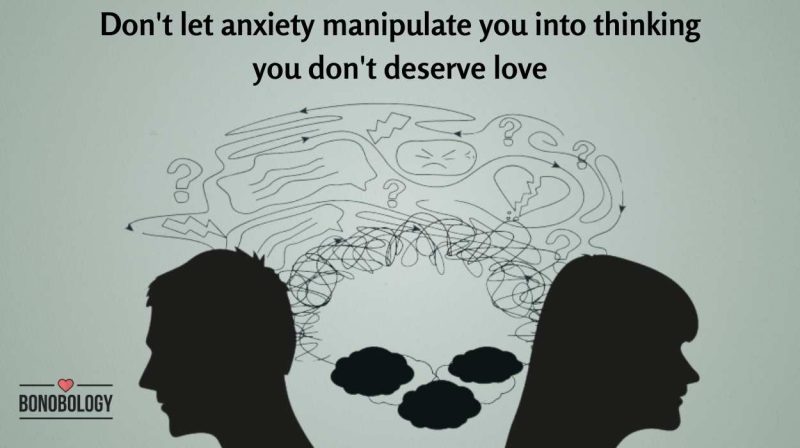
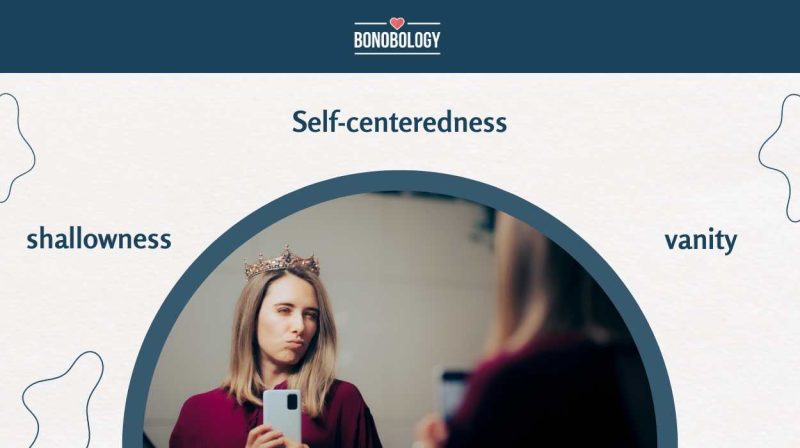
Featured
What Is A Trophy Wife?
7 Signs You Should Not Marry Him
Signs A Guy Is Obsessed With You In A Bad Way: 15 Red Flags
Unintentional Love Bombing: 9 Ways You May Be Overwhelming Your Partner
13 Signs Of A Hot And Cold Relationship & How To Break The Pattern
21 Subtle Signs You’re Not Really In Love With Your Partner
I Hate My Girlfriend: Why You Feel This Way And What To Do
When Health Challenges Affect Your Relationship Dynamics
5 Harsh But True Signs He’ll Never Marry You
21 Signs That You Are Alone In A Relationship
11 Situationship Red Flags You Should Know About
Why Do I Get Attached So Easily? 9 Possible Reasons and Ways to Stop
How To Respond To DARVO: Expert Lists 7 Strategies
What Is Fexting, And Why Is It Bad For Your Relationship?
Are Narcissists Capable Of Love?
11 Prominent Male Narcissist Traits to Watch For
Why Does My Girlfriend Hit Me? Expert Shares 11 Possible Reasons And Ways To Cope
How Does A Narcissist React When They Can’t Control You?
“My Anxiety Is Ruining My Relationship”: 6 Ways It Does And 5 Ways To Manage It
13 Distinctive Traits Of Female Narcissists Revealed